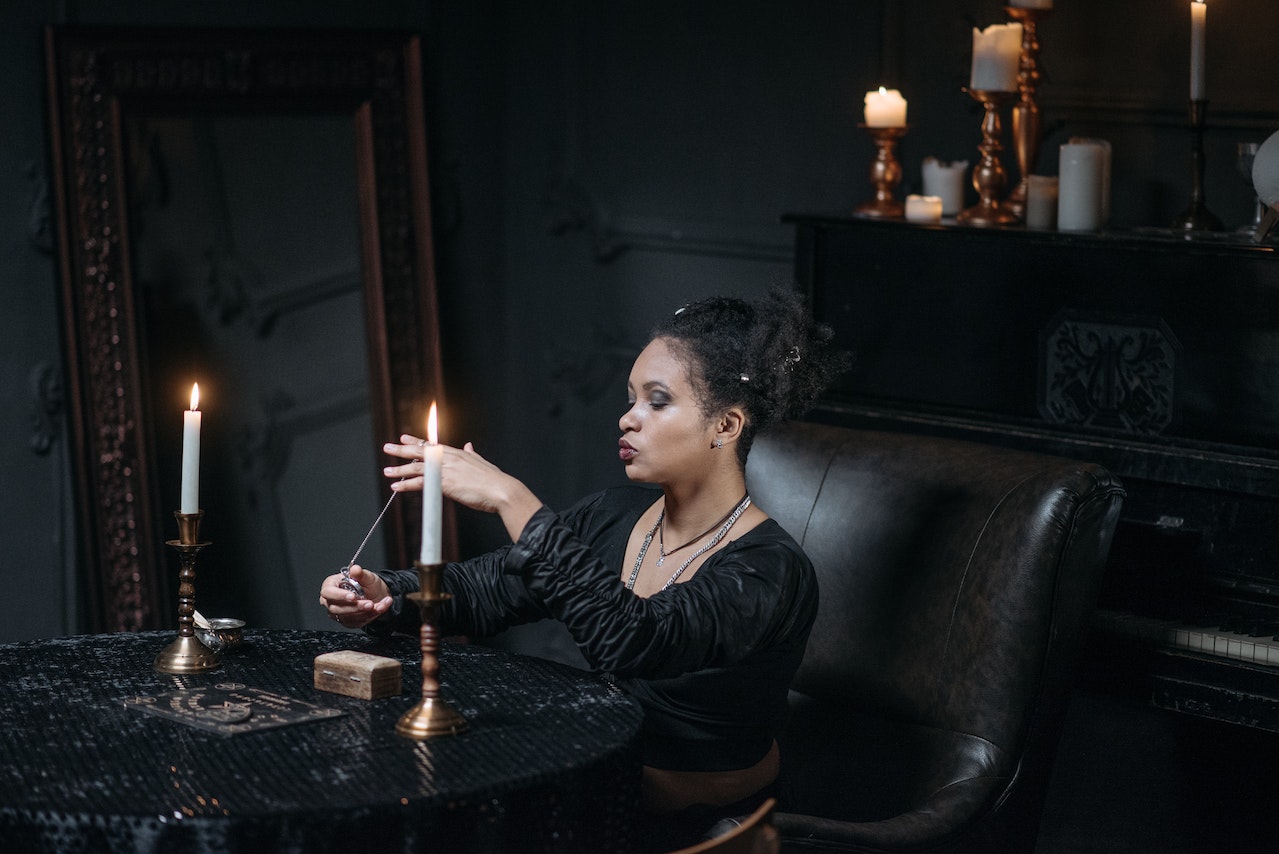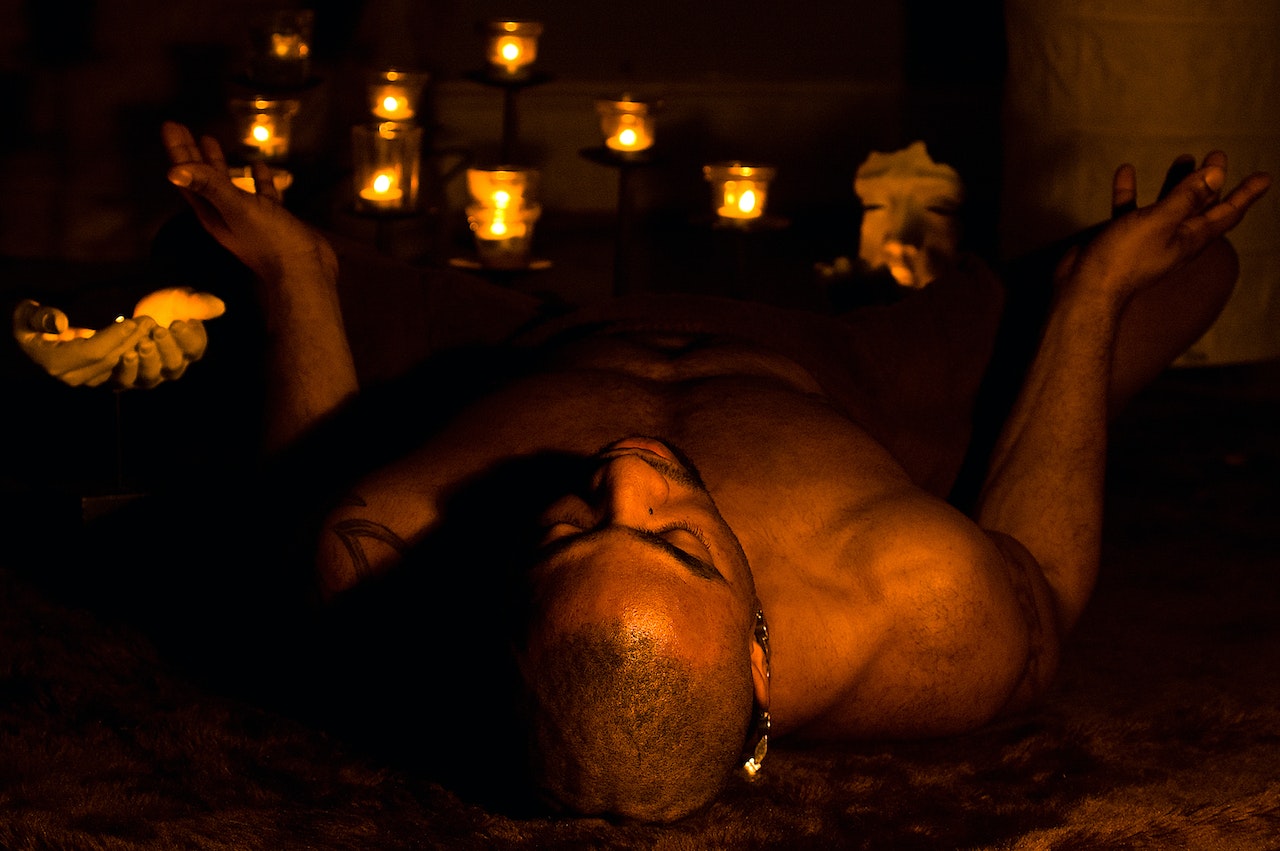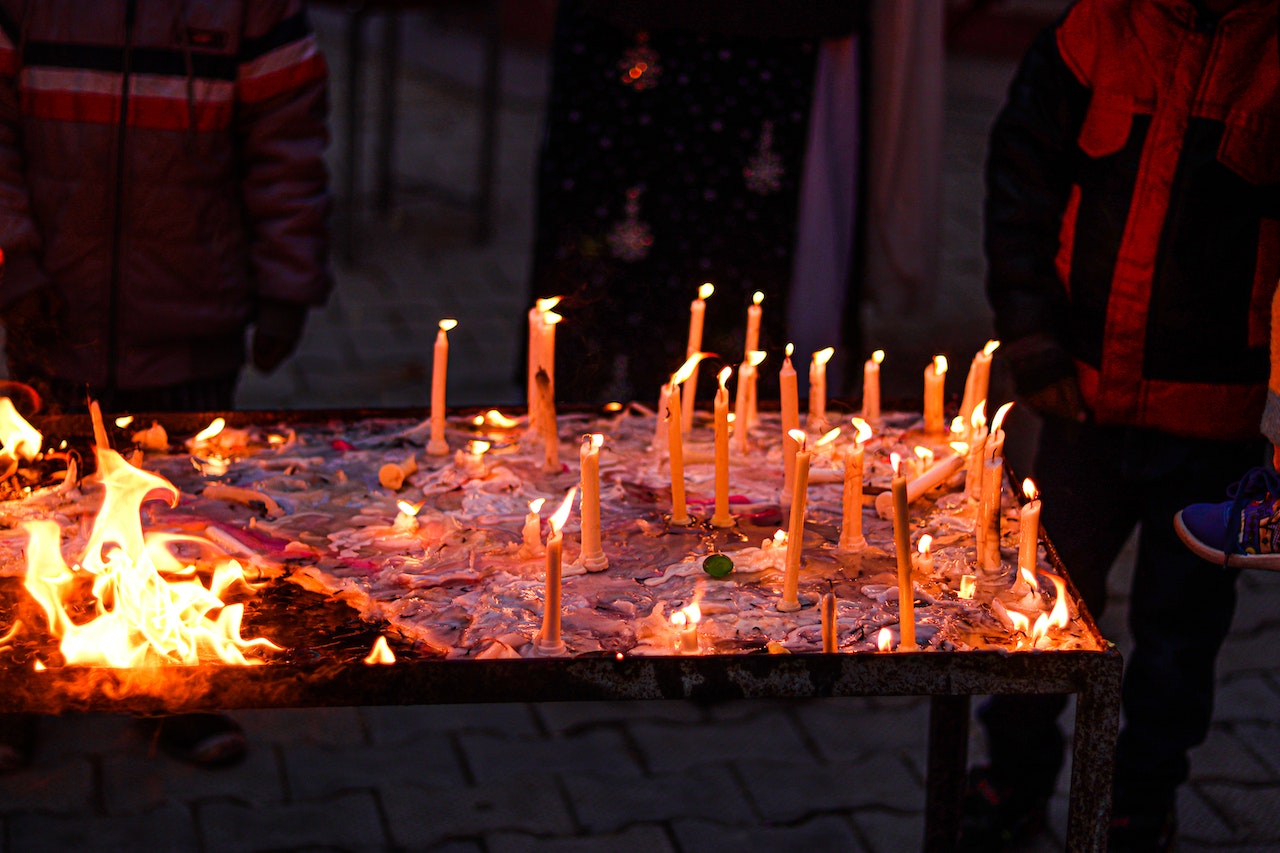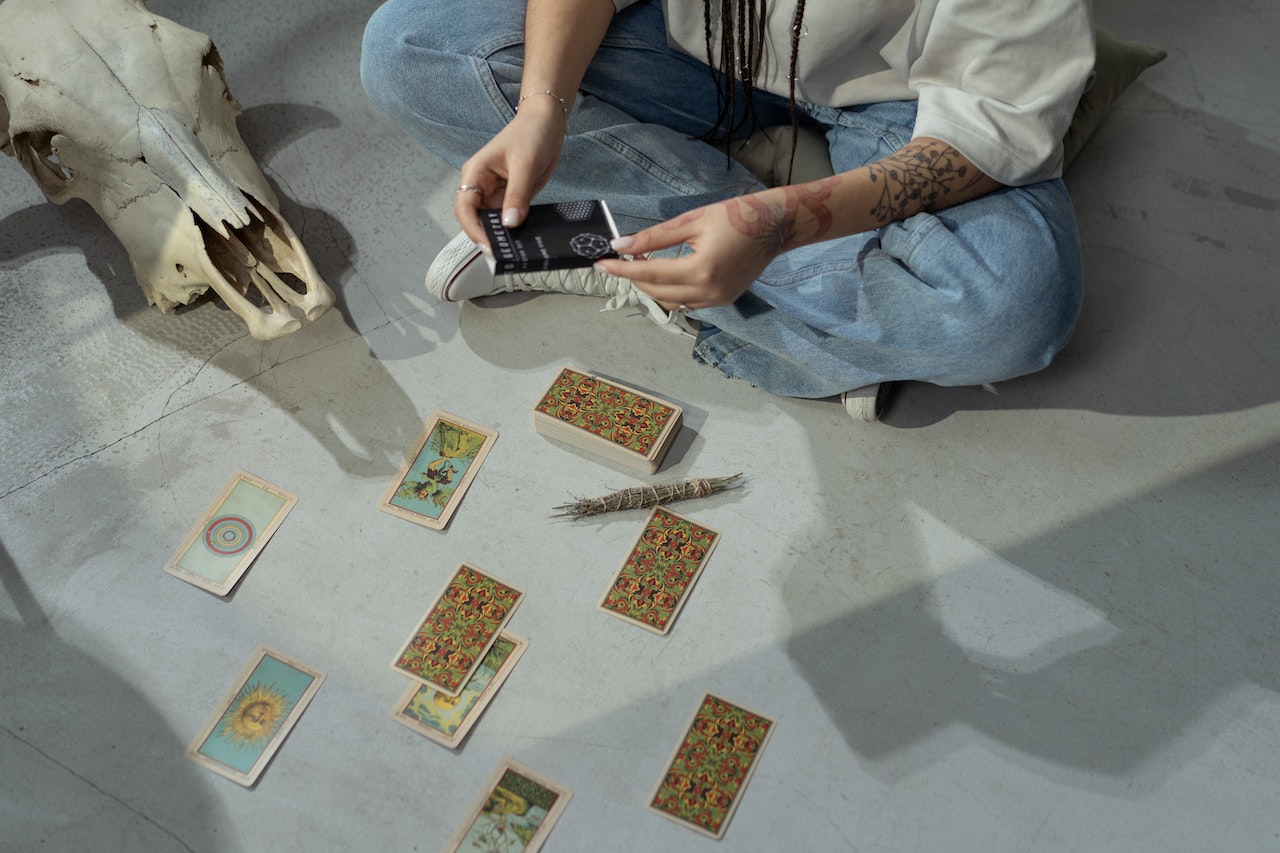
The realm of the paranormalhas always intrigued and captivated human minds. From ghostly apparitions and UFO sightings to psychic phenomena and unexplained mysteries, the paranormal encompasses a wide range of unexplained occurrences that challenge your understanding of the world.
It raises questions that delve deep into the human psyche as you grapple with the unknown and attempt to make sense of the seemingly inexplicable. This article explores the psychology of the paranormal, unraveling the reasons behind your fascination with the unexplained and the various psychological theories that attempt to shed light on these mysterious occurrences.
The Intriguing Allure Of The Paranormal
The paranormal, a realm shrouded in mystery and fascination, continues to captivate the human imagination. Beyond the psychological underpinnings explored earlier, there are various dimensions to the allure of the paranormal that merit further examination.
Discovering the exciting realities buried under paranormal romance's enticing surface is necessary to appreciate its allure fully. This genre has a fascinating past that dates back to sayings and stories from long ago. Paranormal romance is a monument to the age-old tales that have enchanted you for eons, from the captivating stories of gods and humans in Greek mythology to the continuing appeal of immortal beings like vampires, werewolves, and witches.
You may better appreciate paranormal romance's ongoing allure and comprehend why it continues to capture people's hearts and imaginations by learning about these lesser-known beginnings.
The Thrill Of The Unknown
One of the most significant factors that contribute to the allure of the paranormal is the thrill of the unknown. Humans are wired to seek novelty and adventure, and the paranormal offers precisely that. Whether it's a ghostly encounter in a dark, abandoned building or a UFO sighting in the night sky, the prospect of encountering something beyond your comprehension stirs a sense of excitement and curiosity. The element of the unknown is like a magnet, drawing you into the world of the paranormal.
Escapism And Fantasy
The paranormal serves as a gateway to realms of fantasy and escapism. In a world where the boundaries of reality are often restrictive, the supernatural offers an escape from the mundane. Through esoteric literature, movies, and video games, individuals can immerse themselves in worlds where magic, mythical creatures, and supernatural powers reign supreme. This escapism allows people to momentarily step outside the constraints of their everyday lives and indulge in the extraordinary.
A Quest For Answers
While the paranormal is often associated with mysteries and enigmas, it also fuels a quest for answers. The pursuit of understanding the unexplained is a powerful motivator for many. People yearn for explanations that can bring clarity to paranormal phenomena, leading them to investigate, conduct research, and explore different theories. The desire to uncover the truth behind the paranormal mysteries is a driving force that keeps the allure alive.
Connection To History And Tradition
The paranormal is deeply intertwined with history, tradition, and folklore. Many cultures have rich and ancient narratives of supernatural beings, ghostly encounters, and mystical events. This historical connection adds depth and resonance to the fascination with the paranormal. Exploring these traditions and their enduring impact on contemporary beliefs provides a sense of link to the past, making the supernatural an essential part of cultural heritage.
A Sense Of Belonging
Engaging with the paranormal can foster a sense of belonging and community. Whether through paranormal investigation groups, online forums, or conventions, individuals with a shared interest in the supernatural can connect and share their experiences. This communal aspect provides a support system and validation for those who have had paranormal encounters. It also reinforces the belief that they are not alone in their experiences, which can be comforting in the face of the inexplicable.
A Mirror To Human Imagination
The paranormal serves as a mirror to the boundless human imagination. It reflects your innate creativity and capacity for storytelling. The supernatural is a canvas upon which you project your deepest fears and desires, creating narratives that captivate and intrigue you. It offers a glimpse into the vast spectrum of human emotions, from terror to wonder, and provides a stage for your imagination to run wild.
Belief In The Paranormal
Belief in the paranormal is a deeply ingrained aspect of human culture and psyche. It transcends geographical boundaries and has persisted throughout history.
The occurrence of paranormal events is purportedly described in popular culture, folklore, and other non-science sources of information as being outside the realm of regular scientific comprehension. The pseudosciences of ghost hunting, cryptozoology, and ufology are examples of notable paranormal beliefs, as are those relating to extrasensory perception (such as telepathy), spiritualism, and these.
The Power Of Personal Experience
Personal experiences play a pivotal role in solidifying belief in the paranormal. For many individuals, encounters with unexplained phenomena are powerful and transformative events.
These experiences can range from ghostly apparitions to inexplicable synchronicities, leaving a lasting impression on the individual's psyche. Such encounters often serve as vivid, firsthand evidence of the existence of the paranormal, strengthening their conviction in its reality.
The Influence Of Cultural Narratives
Cultural narratives surrounding the paranormal play a significant role in shaping belief systems. These narratives are passed down through generations, becoming embedded in the collective consciousness. Folklore, legends, and religious teachings all contribute to a cultural framework that validates and reinforces belief in the supernatural. These narratives provide a sense of continuity and tradition, anchoring belief in the paranormal within a broader cultural context.
The Role Of Confirmation Bias
Confirmation bias, a well-documented cognitive phenomenon, exerts a powerful influence on belief in the paranormal. When individuals hold a belief in the supernatural, they tend to seek out information and experiences that confirm their existing convictions while dismissing or rationalizing contradictory evidence. This selective processing of data serves to fortify their belief in the paranormal, creating a self-reinforcing cycle.
Coping Mechanisms And Emotional Resonance
Belief in the paranormal can serve as a coping mechanism, especially in times of distress or grief. The idea that departed loved ones continue to exist in some form provides solace and comfort.
Belief in guardian angels or benevolent spirits offers a sense of protection and support in times of need. These beliefs hold emotional resonance, providing a source of strength and reassurance in the face of life's challenges.
Social Validation And Peer Influence
Belief in the paranormal can be reinforced and perpetuated through social interactions. When individuals share their experiences and ideas with like-minded peers, it creates a sense of validation and community. This social reinforcement strengthens their conviction in the reality of the paranormal. Additionally, peer influence can play a significant role in shaping belief systems, as individuals may adopt the beliefs of their social circles.
The Intersection Of Science And The Paranormal
The relationship between science and belief in the paranormal is complex and often contentious. While the scientific method demands empirical evidence and replicable experiments, trust in the paranormal is often rooted in subjective experiences and anecdotal evidence.
However, there is a growing acknowledgment within the scientific community that some paranormal phenomena warrant further investigation. This intersection of science and the esoteric challenges traditional paradigms and encourages a more nuanced understanding of belief in the supernatural.
The Psychology Of Paranormal Experiences
The study of human behavior and experiences related to what is sometimes referred to as the paranormal is known as anomalistic psychology in psychology, and it makes minimal assumptions regarding the integrity (or lack thereof) of the reported events.
Anomalist psychology holds that paranormal events have naturalistic explanations coming from psychological and physical elements that have led some people to believe in the existence of the supernatural. Many early writings offered logical justifications for purportedly paranormal occurrences.
Paranormal experiences are a realm of human existence where the boundaries of the known and the unknown blur. These experiences, whether they involve sightings of apparitions, encounters with extraterrestrial beings, or psychic phenomena, have been the subject of intense curiosity and debate.
The Influence Of Cultural Beliefs
Cultural beliefs and upbringing play a significant role in shaping how individuals perceive and interpret paranormal experiences. Cultural narratives, religious backgrounds, and societal norms all influence one's understanding of the supernatural.
For example, a person raised in a culture with a strong belief in ancestral spirits may be more inclined to interpret unexplained occurrences as encounters with the deceased. Understanding the impact of cultural assumptions is crucial for comprehending why certain types of paranormal experiences are more prevalent in specific regions or communities.
The Power Of Suggestion And Social Contagion
Suggestions, both direct and indirect, can be a potent force in shaping paranormal experiences. When individuals are exposed to stories, media, or even peer discussions about supernatural events, it can prime their minds to expect and interpret similar encounters.
Social contagion, where beliefs and experiences spread through social networks, can lead to shared paranormal experiences among groups of people. The power of suggestion and social contagion highlights the suggestibility of the human mind and its role in shaping ghostly encounters.
The Link Between Stress And Paranormal Encounters
Stress and heightened emotional states can trigger and intensify paranormal experiences. When individuals are under significant pressure, their minds may become more receptive to esoteric interpretations as a way to cope with anxiety and uncertainty.
This link between emotional distress and mystical experiences is particularly evident in cases of haunting, where individuals report encounters with ghosts during times of personal crisis. Understanding the connection between stress and the paranormal sheds light on the psychological mechanisms at play during such meetings.
The Influence Of Media And Popular Culture
Media, including television, films, books, and the internet, have a profound impact on how individuals perceive and interpret paranormal experiences. The portrayal of supernatural phenomena in popular culture often shapes people's expectations and beliefs regarding the paranormal.
These media depictions not only influence what individuals may encounter during paranormal experiences but also shape the way they interpret and remember these encounters. The power of media in shaping the psychology of paranormal experiences cannot be overstated.
The Role Of Personal Beliefs And Worldview
Individual beliefs and worldviews strongly influence how people process and make sense of paranormal experiences. For someone with a deep-seated belief in the existence of extraterrestrial life, an unusual light in the night sky might be interpreted as a UFO.
Conversely, a skeptic may dismiss the same observation as a mere natural phenomenon. Personal beliefs serve as filters through which paranormal experiences are processed, leading to vastly different interpretations and responses.
The Quest For Meaning And Transcendence
Paranormal experiences often catalyze individuals seeking more profound meaning and transcendence in their lives. These encounters can be transformative, prompting individuals to explore questions about the nature of reality, the existence of an afterlife, and the boundaries of human understanding.
The quest for meaning and transcendence is a powerful motivator, inspiring individuals to seek out paranormal encounters and find answers to life's most profound questions.
Skepticism And The Paranormal
Skepticism, the practice of questioning and doubting extraordinary claims, is an essential aspect of the human psyche, serving as a counterbalance to our innate curiosity about the unknown. When applied to the realm of the paranormal, it offers a critical lens through which to assess the validity of supernatural phenomena.
The Evolution Of Paranormal Beliefs
Skepticism has played a crucial role in the evolution of paranormal beliefs. It acts as a natural filter, allowing for the weeding out of baseless claims while allowing more robust and tested phenomena to gain recognition.
Throughout history, skeptics have challenged popular paranormal beliefs, leading to the refinement of our understanding of these phenomena. This interplay between skepticism and faith has driven progress in paranormal research.
The Psychological Aspect Of Skepticism
Skepticism, when examined from a psychological perspective, reveals the importance of critical thinking and intellectual inquiry. It is the product of cognitive processes that encourage individuals to question and evaluate information. This intellectual curiosity, combined with a healthy dose of doubt, drives individuals to seek evidence and rational explanations for purported paranormal encounters.
The Skeptic's Role In Paranormal Investigation
Skeptics often play a significant role in paranormal investigations. They bring a critical eye to the table, scrutinizing evidence and claims with a focus on natural explanations.
Skeptics participating in paranormal research contribute to the credibility of the field by applying scientific methods, skepticism, and a willingness to debunk false claims. This adds a layer of objectivity to investigations, ensuring that any genuinely unexplained phenomena can be thoroughly examined without bias.
Debunking Vs. Open-Minded Skepticism
Skepticism comes in various forms, ranging from open-minded skepticism to debunking skepticism. Open-minded skeptics maintain a critical perspective but are open to the possibility of paranormal phenomena if supported by compelling evidence.
In contrast, debunking skeptics actively seek to disprove paranormal claims, often with a presumption of fraud or error. Both approaches have their merits and drawbacks, and the balance between them can vary depending on individual beliefs and experiences.
The Role Of Skeptical Organizations
Skeptical organizations and groups have emerged to promote critical thinking and scientific skepticism in the face of paranormal claims. These groups often engage in educational efforts, conduct investigations, and offer resources to the public. They aim to encourage rational thinking and evidence-based assessments of the paranormal, fostering a healthy skepticism that counters uncritical acceptance of extraordinary claims.
The Challenge Of Balancing Belief And Skepticism
Balancing belief and skepticism is a challenge for many individuals who have had paranormal experiences. While skeptics may cast doubt on their encounters, these experiences can be deeply personal and emotional.
Striking a balance between a willingness to entertain natural explanations and honoring the emotional impact of the paranormal experience is a complex psychological task that many face when confronted with the unexplained.
The Future Of Paranormal Psychology
As our understanding of the human mind and the paranormal continues to evolve, so does the field of paranormal psychology. The future of esoteric psychology promises exciting advancements, challenges, and opportunities for exploration.
Integration Of Technology In Paranormal Research
The future of paranormal psychology will likely witness an increased integration of technology in research and investigations. Advanced tools such as augmented reality (AR) and virtual reality (VR) can provide more immersive and controlled environments for studying paranormal experiences. Additionally, the use of cutting-edge sensors and data analysis techniques may offer new insights into the physiological and psychological aspects of such encounters.
The Role Of Neuroscience
Understanding the brain's role in paranormal experiences is an emerging frontier in the field. Neuroscientists and psychologists are increasingly exploring the neural mechanisms responsible for abnormal perceptions, such as out-of-body experiences, lucid dreams, and altered states of consciousness. The future of paranormal psychology may see a deeper integration of neuroscience, shedding light on the neurological basis of ghostly encounters.
Cross-Cultural And Cross-Disciplinary Investigations
The field of paranormal psychology has primarily been rooted in Western perspectives and beliefs. However, the future promises a more global and cross-cultural approach.
Researchers will collaborate with experts from diverse cultural backgrounds to explore the varying interpretations of the supernatural. Additionally, interdisciplinary efforts that involve psychology, anthropology, sociology, and other fields will help create a more comprehensive understanding of paranormal experiences.
Advances In Analyzing Anecdotal Evidence
Anecdotal evidence, often dismissed in the scientific community, remains a rich source of information regarding paranormal encounters. In the future, advances in text analysis, natural language processing, and machine learning may enable researchers to analyze large datasets of personal accounts.
This will allow for the identification of common themes, patterns, and emotional responses in paranormal narratives, providing valuable insights into the psychological aspects of these experiences.
Ethical Considerations In Paranormal Research
With the increasing popularity of paranormal investigation and research, ethical considerations become increasingly important. The future of esoteric psychology will place a greater emphasis on ethical guidelines for conducting studies, ensuring the well-being of participants, and respecting cultural sensitivities. Researchers will need to navigate the delicate balance between scientific inquiry and the potential psychological impact on those involved.
The Psychology Of Paranormal - FAQs
How Do Cultural Narratives Influence Our Psychology In Relation To The Paranormal?
Cultural narratives shape our perceptions and interpretations of paranormal experiences, providing a cultural context for understanding the supernatural.
What Role Does The Uncertainty Principle Play In The Psychology Of The Paranormal?
The uncertainty principle, derived from quantum physics, highlights the ambiguity and unpredictability of the paranormal, which can heighten our fascination with it.
How Does Cognitive Dissonance Affect Individuals Who Experience The Paranormal?
Cognitive dissonance can arise when individuals encounter the paranormal, as their preexisting beliefs may conflict with their newfound experiences, leading to a psychological need to reconcile these contradictions.
What Psychological Factors Contribute To The Persistence Of Paranormal Beliefs Despite The Lack Of Empirical Evidence?
Confirmation bias, emotional resonance, and the need for meaning all contribute to the persistence of paranormal beliefs, as they provide a sense of comfort and order in the face of uncertainty.
How Might The Placebo Effect Be Linked To Paranormal Experiences?
The placebo effect can influence the perception of paranormal encounters, as individuals may experience feelings of healing, protection, or connection when they believe in the supernatural, even without objective evidence.
Conclusion
The exploration of "The Psychology of Paranormal" reveals a multifaceted landscape of human cognition, belief systems, and cultural influences. It highlights the intricate interplay between our psychological needs, cognitive biases, and the allure of the unknown. As we continue to delve into "The psychology of the paranormal," we gain a deeper understanding of how our minds grapple with the enigmatic and enduring fascination with the supernatural.


